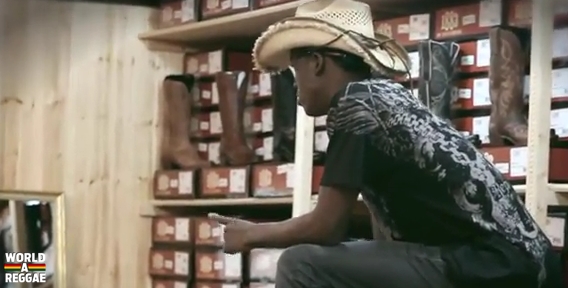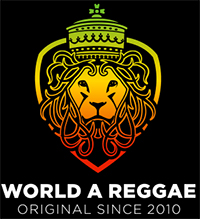As disparate as Jamaican reggae and American country music seem, they actually share many commonalities. Both genres were created by marginalized peoples, be it Jamaicans who flocked from rural locales seeking jobs in the bustling capital Kingston then settled in overcrowded tenement yards often lacking in basic amenities or Americans in the southern Appalachia region residing in economically depressed communities, in near isolation from the rest of the country. As a vital means of expression, each populace fashioned a sonic identity culled from various influences. Jazz, Cuban music, calypso and especially early R&B heard on U.S. radio signals reaching Jamaica were essential components in the creation of the island’s first home-grown popular music, ska, in the early 1960s; the frenetic ska beat was slowed down into rocksteady then morphed into reggae by the late 1960s. Bluegrass, the direct forerunner to country music is derived from the English and Scottish ballad tradition and Irish and Scottish fiddle music. African-American blues musicians also played preeminent roles in crafting bluegrass and country’s signature instrumentation, most notably through their introduction of the banjo, now regarded as an emblematic representation of the region, into the music.
The reggae and country genres are rife with love-gone-wrong songs, romanticized gritty outlaw tales and expressions of unwavering spiritual devotion providing guidance through daily struggles, each delivered in their distinctive regional voices, the molasses thick Jamaican patois heard on many reggae tracks and country’s indelible southern twang.
A little over two years ago country music devotee Cristy Barber, Vice President of Marketing and Promotions at VP Records, the world’s largest reggae label and a Grammy nominated producer for the 2003 dancehall reggae-hip hop compilation album Def Jamaica, envisioned producing a record that would unite her two musical passions. “Reggae’s Gone Country”, a joint venture between Warner Music Nashville and VP Records, due for release in August, is sure to excite fans of both genres. Working with Barber on the album’s production is singer/songwriter John Rich of the multi-platinum selling country duo Big & Rich and the winner of this year’s Celebrity Apprentice; acclaimed Jamaican saxophonist Dean Fraser who is responsible for several of the best reggae tracks currently being produced on the island; singer/songwriter Charlie Pennachio, Rich’s associate and lead singer of the multi-platinum selling 90s boy band Linear; VP Records CEO Chris Chin and Barber’s father Raymond, a country music aficionado who introduced her to the iconic music of Marty Robbins and Johnny Horton when she was a child. The album’s title is adapted from Rich’s former show for Country Music Television (CMT) Gone Country, which placed unlikely characters in the role of wannabe country stars.
A 19-year veteran in the reggae business, Cristy Barber grew up in the Midwest listening to country but in 2006, she says, it became an obsession. “I started going back and forth to Nashville, building relationships with different artists there,” Barber explained in a recent interview in Kingston, “and every time I would tell them how big country is in Jamaica, that everyone from 20-year- old kids to their grandparents listen to it, they couldn’t believe it.” For Reggae’s Gone Country Barber handpicked 13 classic country songs to be covered by as many Jamaican acts and backed by seasoned musicians she refers to as a “dream team reggae band.” She sent the original songs and their lyrics to the selected vocalists and following Barber’s directive Fraser gathered together Kingston’s finest instrumental talents which includes legendary drum and bass duo Sly Dunbar and Robbie Shakespeare, veteran bassist Glen Browne and guitar virtuoso Dwight Pinkney. Vocals and backing tracks were laid down at Kingston’s Grafton and Tuff Gong Studios, the latter owned by the Marley family, and mixed by Errol Brown and his son Shane. The elder Brown, who engineered/mixed much of Bob Marley’s music for Island Records says Reggae’s Gone Country is one of the best albums he has worked on in his entire career.
Due to the Jamaican artists’ and musicians’ hectic touring and recording schedules the reggae backing tracks and vocals were completed nearly a year after they commenced. The tracks were then sent to Nashville where they were embellished with country instrumentation by legendary pedal steel player Mike Johnson and Jonathan Yudkin on fiddle/ banjo with John Rich overseeing the production at Fireside Studios, formerly owned by the late country legend Porter Wagoner. Barber is confident that the seamless musical dialogue between Kingston and Nashville heard on Reggae’s Gone Country will be embraced by both reggae and country lovers. “Obviously this project is much easier for Jamaicans to digest because it’s reggae artists doing covers of country classics that people in Jamaica already know,” she offers. “But it is also great for educating Nashville’s country music industry and country fans everywhere about country’s importance throughout the Caribbean.”
The first single features the dynamic 21-year-old singer Romain Virgo, the 2007 winner of Rising Stars (the Jamaican equivalent of American Idol) reworking the Gatlin Brothers’ 1979 hit “California,” with Larry Gatlin providing supporting vocals. The pair recorded the track together in Nashville and footage from that session will be used for the song’s video and for a short made for TV documentary to be broadcast in Jamaica and throughout the U.S., detailing the making of the album and the intertwined relationship between the two genres. “Being a part of the experience with Romain Virgo and Larry Gatlin in the studio will always have a special place in my heart,” reflects Barber. “Larry has embraced Romain like a son and has said Romain actually sang the song better than he did originally!” Another profoundly talented young vocalist, Duane Stephenson puts his distinctive stamp on “Suspicions,” the late Eddie Rabbit’s mega country-pop hit from 1979. Dancehall reggae artist Busy Signal, more often associated with spitting out rapid-fire rhymes, offers an inspiringly sung rendition of Kenny Rogers’ country-pop Grammy Award winning blockbuster “The Gambler.”
Women vocalists have always held a special place in the heart of country fans and two young Jamaican songstresses, Etana and Tessanne Chin, shine in their respective renditions of Patsy Cline’s “Crazy” and Crystal Gayle’s “Don’t It Make My Brown Eyes Blue.” Roots reggae star Luciano’s velvet baritone renders a haunting version of the late Jim Reeves’ immortal “He’ll Have To Go”; The Statler Brothers’ brilliant 1966 hit, “Flowers on the Wall,” which peaked at No. 4 on the Billboard Hot 100 is given an equally dazzling four part harmony treatment by Jamaican vocal super group L.U.S.T. (Lukie D, Thriller U, Singing Melody and Tony Curtis). “Wolverton Mountain” by Claude King spent nine weeks at No. 1 during its 26-week long reign on the country chart in 1962; Richie Stephens beautifully adapts his robust vocals to the classic tale of a young suitor who cannot be with the woman he loves because of her overprotective father but the song also offers a metaphor for anyone seeking to overcome seemingly insurmountable hurdles. Roger Miller’s 1965 crossover country hit “King of the Road” is given regal treatment by veteran Jamaican crooner Freddie McGregor while the resonant vocals of Gramps Morgan of sibling reggae group Morgan Heritage are ideally suited to “Feels So Right,” a mellow country pop ballad that was the first mainstream hit for the group Alabama.
George Strait’s “The Chair,” a tender ballad about a chance meeting, and the lead-off single to his 1985 platinum album Something Special peaked at No. 1 on the country chart in the U.S. and Canada; Tarrus Riley’s equally compelling version could top reggae and country charts. Riley also delivers the album’s bonus track, available exclusively on iTunes, a rollicking rendition of Jon Anderson’s 1992 country chart topper “Straight Tequila Night.” Marty Robbins’ Grammy Award winning “El Paso,” a timeless Tex-Mex ballad reached No. 1 on the country and pop charts in early 1960. An absorbing narrative, unforgettable harmonies and Spanish guitar flourishes evoking the western films that were so popular in Jamaica’s cinemas throughout the ‘50s and ‘60s have made “El Paso” one of country’s most enduringly popular songs on the island; the pure, pliant vocals of Sanchez render his version of “El Paso” the quintessential country-reggae cover.
George Jones is widely considered country’s greatest living singer; Jones’ “He Stopped Loving Her Today,” relating the story of someone who never gives up on true love, is regarded as perhaps the greatest country song of all time and it is covered here by a Jamaican artist of commensurate status. Beres Hammond, venerated as Jamaica’s finest living singer/songwriter, brings the gritty soulfulness that trademarks his exceptional, extensive catalogue to an exalted country classic.
Having assembled an extraordinary cast of vocalists, musicians and producers to execute her dream project, Barber hopes that the heartfelt renditions of country classics heard on Reggae’s Gone Country will introduce music fans everywhere to the talent that exists in Jamaica. “There are people who love Bob Marley or Jimmy Cliff but don’t know how great Tarrus Riley is or what a Tessanne Chin can do or this 21-year-old kid Romain Virgo,” notes Barber. “That’s what this is about, people might know Sly and Robbie but don’t sleep on the skills of Dean Fraser, Errol Brown or other talent down there. With the music industry where it is now, we need more people at the reggae party and I am really hoping this album will give more exposure to the genre.”
http://www.youtube.com/watch?v=a2WZ8xXgu8s





